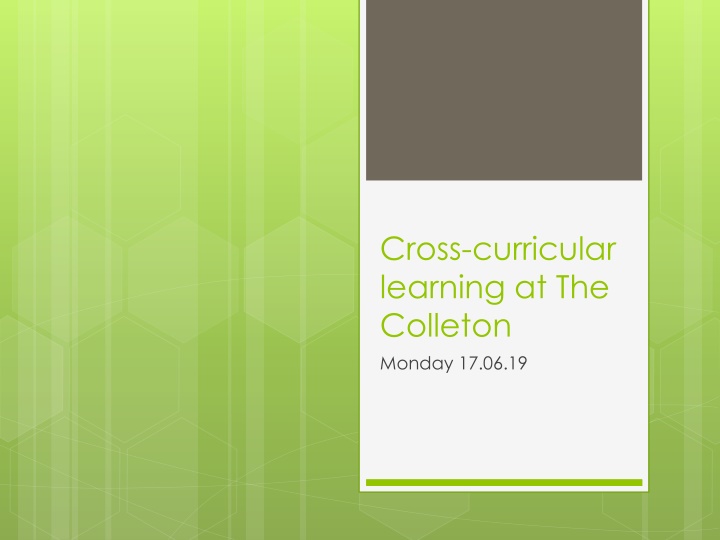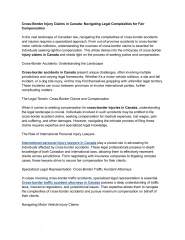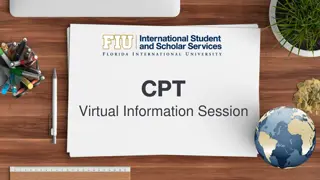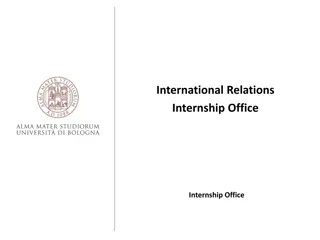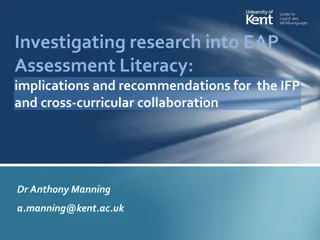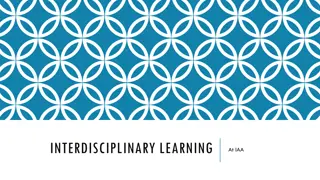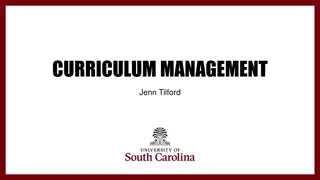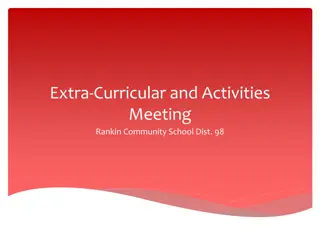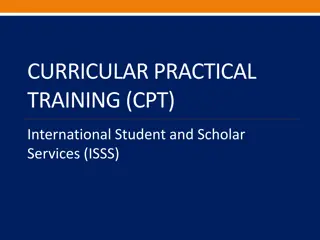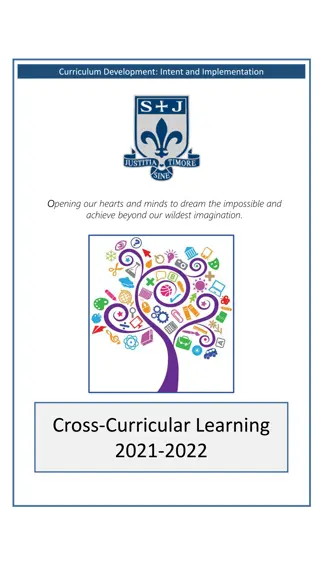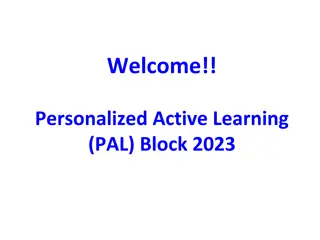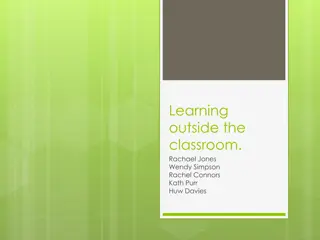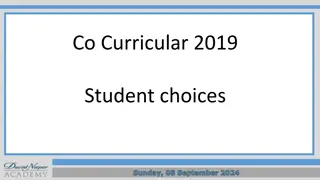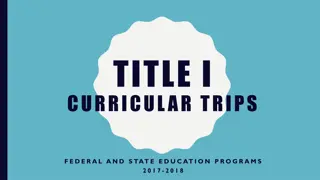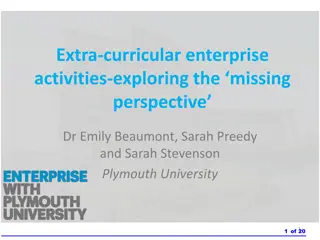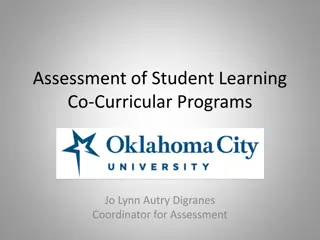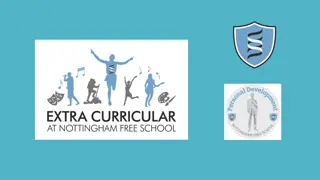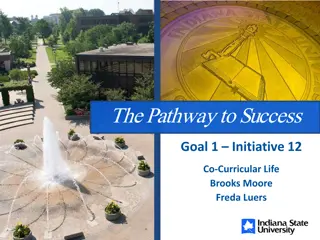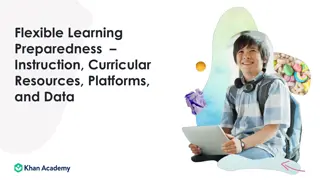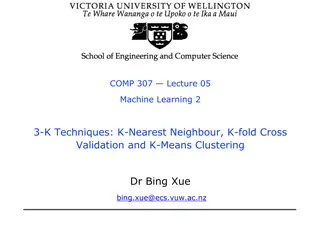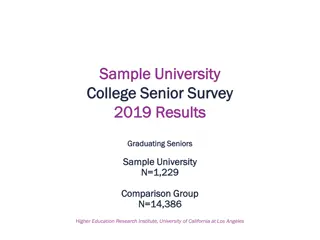Cross-curricular Learning at The Colleton
The adults at The Colleton supported and challenged students through various methods like asking questions, demonstrating, encouraging high-order thinking, and fostering collaboration. The planning for cross-curricular learning is detailed with a Rolling Programme that aligns with the National Curriculum.
Uploaded on Feb 15, 2025 | 7 Views
Download Presentation

Please find below an Image/Link to download the presentation.
The content on the website is provided AS IS for your information and personal use only. It may not be sold, licensed, or shared on other websites without obtaining consent from the author.If you encounter any issues during the download, it is possible that the publisher has removed the file from their server.
You are allowed to download the files provided on this website for personal or commercial use, subject to the condition that they are used lawfully. All files are the property of their respective owners.
The content on the website is provided AS IS for your information and personal use only. It may not be sold, licensed, or shared on other websites without obtaining consent from the author.
E N D
Presentation Transcript
Cross-curricular learning at The Colleton Monday 17.06.19
Which ways of learning have you seen? asking questions investigating making things researching designing things practising skills writing down ideas and/or information solving problems feeding back ideas creating pictures presenting (including drama) discussing composing collaborating making decisions/choices making mistakes changing/adapting ideas and actions testing reflecting making links with other learning
How did the adults support and challenge? Asking questions (different types and levels for different purposes) Instructing and demonstrating Encouraging high order thinking Linking to previous learning Establishing a purpose (including cross-curricular linking) Encouraging children to ask questions Giving choice and time for collaboration Presenting learning opportunities in a range of forms to support different learning styles (how children perceive through experience and consideration and process through reflection and experimentation, including VAK) Giving discussion and thinking time Encouraging children to reflect on their learning and giving opportunities to communicate it (many strategies) Aiming for deep learning
Planning The planning for cross-curricular learning is quite detailed. At The Colleton we call this our Rolling Programme. The Rolling Programme runs for 2 years in YT (KS1)and for 4 years in MT & OT (KS2). The Rolling programme includes, over this period of time, all the skills and objectives in the National Curriculum for each year group. We review the Rolling Programme regularly and may change the topic but the skills and objectives remain the same. We ensure that there is no repetition, only extention of learning as the children progress up the school.
Planning contd Learning objectives National curriculum objectives Key focus and questions Activities Resources To create a mind map detailing what they already know about the Romans To locate Rome on a map To identify Roman empire on a map when it was at the height of its power know and understand significant aspects of the history of the wider world: the expansion and dissolution of empires gain and deploy a historically grounded understanding of abstract terms such as empire Location of Rome and Roman Empire What do we already know about the Romans? Where is Rome? How big was the Roman empire? What is an empire? How did the empire expand? Mind map Find Rome and Roman empire on a map MT History planning Spring term : Rampaging Romans To begin to understand how modern calendar works To use terms BC, AD, CE, BCE accurately. To understand why the Romans wanted to invade Britain To understand why first invasion failed but second invasion succeeded. understand historical concepts such as continuity and change, cause and consequence, similarity, difference and significance, and use them to make connections, draw contrasts, analyse trends, frame historically-valid questions and create their own structured accounts, including written narratives and analyses Roman invasions and the power of their army Why did Caesar s invasions in 55 and 54 BC fail? Why did 43 AD invasion succeed? Why did the Romans want to invade Britain? When did the Romans leave Britain? What s the difference between invasion and moving? How did the Romans organise their army? Create a timeline (large timeline on playground) Hot seat: Caesar, Claudius, Create shield (DT link) and role play Roman army tactics Caesar s account of invasion of Britain Roman invasion of Britain and power of their armies Caesar s invasion of Britain https://www.bbc.co.uk/education/clips/z vthfg8 Life of Roman soldier https://www.bbc.co.uk/education/clips/z gsfb9q Tactics of Roman army https://www.bbc.co.uk/education/clips/zs mxpv4
Teaching and Learning We balance the teaching of cross-curricular work with teaching key maths and English skills across the week. At the beginning of each term we put all the areas of the curriculum being studied for each team on the website. This is to help parents support learning at home if they should wish to. These can be found under; Parent/Carer Team letters Curriculum map under each team.
Climate and environment for learning (including our curriculum) Cross-curricular rolling programme of topics (planned and unplanned learning beyond learning objectives ) Valuing different intelligences Recognising and catering for different learning styles Recognising children as individuals and that they and learning change ( whole child) Having high expectations Talking about the process of learning and new discoveries (understanding the brain) Valuing in the process of learning, not just the finished product
Continued Promoting independence and active, high level thinking Children and adults feel safe to have a go and take risks Team-teaching giving children and staff access to different teachers (skills, styles, personalities) Mixed ages to learn from each other (in and across teams) Setting, sharing and reflecting on learning targets/goals Praising efforts Flexible breaks and free access to water and snacks Flexible timetabling and grouping of children
Questions & thank you We hope that you have enjoyed finding out about cross-curricular learning at The Colleton. We hope that you are able to join us on Friday morning when we will be showing you how we teach English and Maths.
